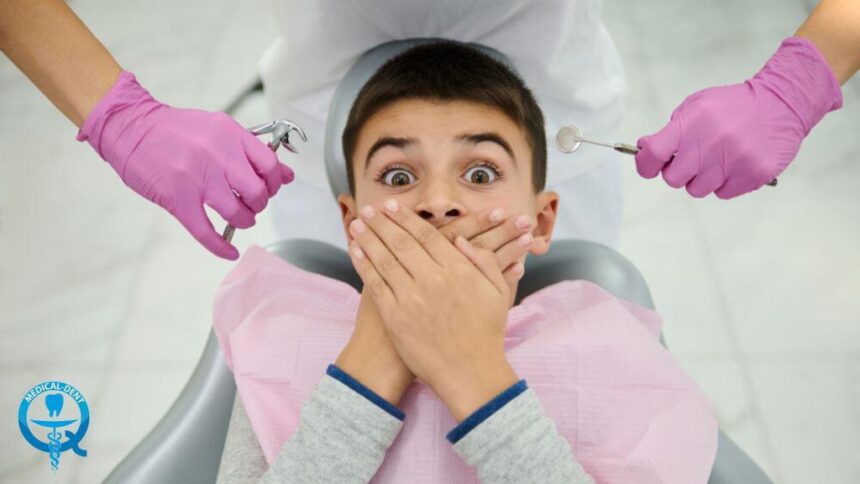Milk teeth, although temporary, play a key role in a child's development. Taking proper care of their condition is extremely important, as caries of milk teeth can have long-term consequences. Therefore, the removal of the milk is a last resort, it is always worth treating it if possible, and preferably to prevent diseases in the mouth. How to do this - welcome to the article.
What is deciduous tooth decay?
Dental caries of deciduous teeth is a disease of the teeth that is caused by acids. These affect the enamel and dentin, destroying them while causing great pain for the child.
Importantly, deciduous teeth are much more vulnerable to decay because they are less mineralised than permanent teeth. Thus, not only do deciduous teeth decay more quickly, but caries attacks subsequent teeth much more quickly.
Most often, caries of deciduous teeth is the result of poor oral hygiene, too frequent consumption of sweets and sugary drinks, or lack of fluoride in the diet.
Before visible changes in the mouth occur (black and damaged teeth) it is worth reacting early to the first symptoms. And what can we include among them?
- Toothache - your child may complain of a toothache or pain when eating.
- Dental discolouration - visible stains or discolouration on the surface of the teeth.
- Sensitivity - increased sensitivity to cold, hot or sweet foods.
- Chewing discomfort - problems chewing or feeling uncomfortable when eating.
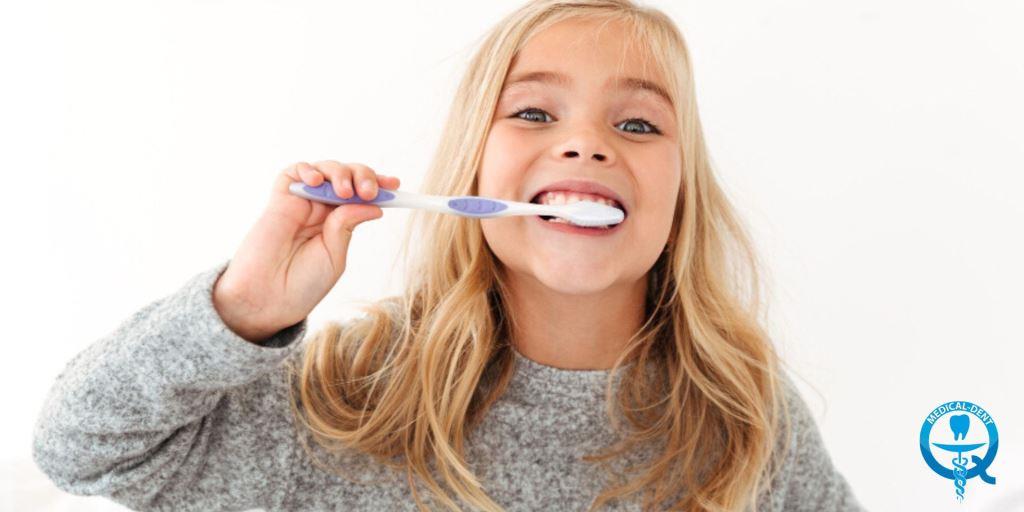
Prevention is best!
This is the most important principle in dentistry, especially in children. Prevention saves your little one stress and pain, as well as unpleasant consequences in the future such as crooked teeth. For you, as a parent, it means no treatment costs and saves you the time it would take for further visits, not to mention the inability to help your child through the pain.
So what is the best way to prevent caries in deciduous teeth? Just follow a few basic rules.
The first is regular and proper oral hygiene. Brushing your teeth twice a day is a must, although we recommend doing it after every meal. If this is not possible you can rinse the mouth with water. IMPORTANT: Flossing - unfortunately many children do not do this, and often decay of deciduous teeth starts in the spaces between the teeth.
And if your little one is not a fan of taking care of their oral hygiene we recommend our text "10 ways to encourage your child to brush their teeth".
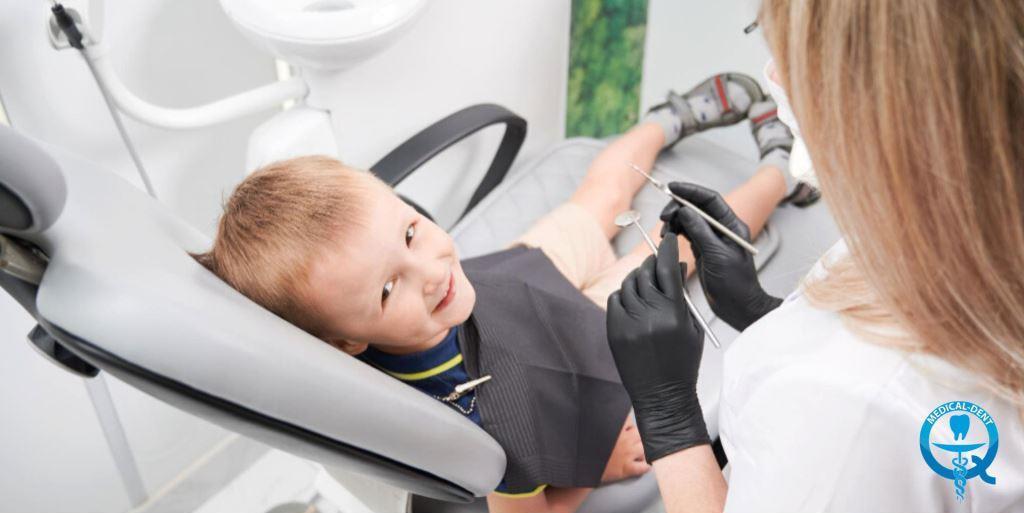
The second and equally important factor that will protect your child from deciduous tooth decay is ongoing dental care. Visits should take place at least every six months. The dentist will not only have the opportunity to see the state of the mouth and implement any treatment, but will also carry out a number of treatments to protect the millipedes. We wrote more on this subject in the text "Preventive treatments for children".
Finally, diet. The basic thing is to limit the intake of sweets and sweet drinks that coat the teeth. Instead, it is worth introducing products that will support your child's health. You can read more about this in the text "Anti-caries diet in children".
What if the child is already struggling with pain and the black spots on the teeth are visible to the "naked eye"?
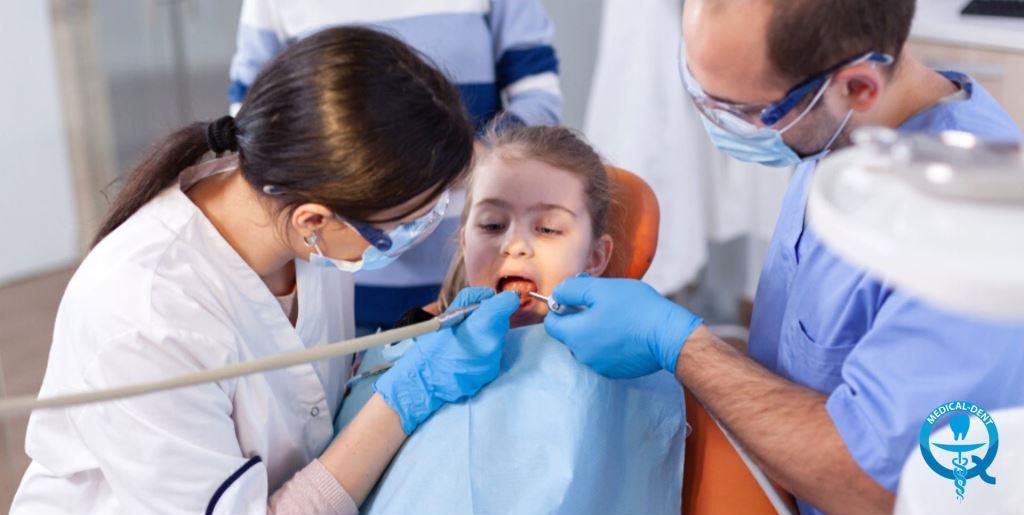
Treatment of caries in deciduous teeth
As we mentioned, the removal of a millipede is a last resort. Milky teeth not only have an aesthetic function, but also influence the development of speech and the chewing of food. In addition, tooth loss due to decay can affect the development of the correct alignment of permanent teeth.
We described the treatment of deciduous teeth in detail in the article with the same title "Treatment of deciduous teeth". In short, depending on the condition of the tooth, the dentist may decide to clean the tooth and place a fillings or previous root canal treatment.
The first treatment option for deciduous teeth concerns smaller carious cavities. In the case of advanced decay that has reached the pulp of the tooth (the innermost part of the tooth containing the nerve), endodontic treatment, or popularly known as 'root canal treatment', may be necessary.
What if the aforementioned treatment doesn't help or doesn't make sense?
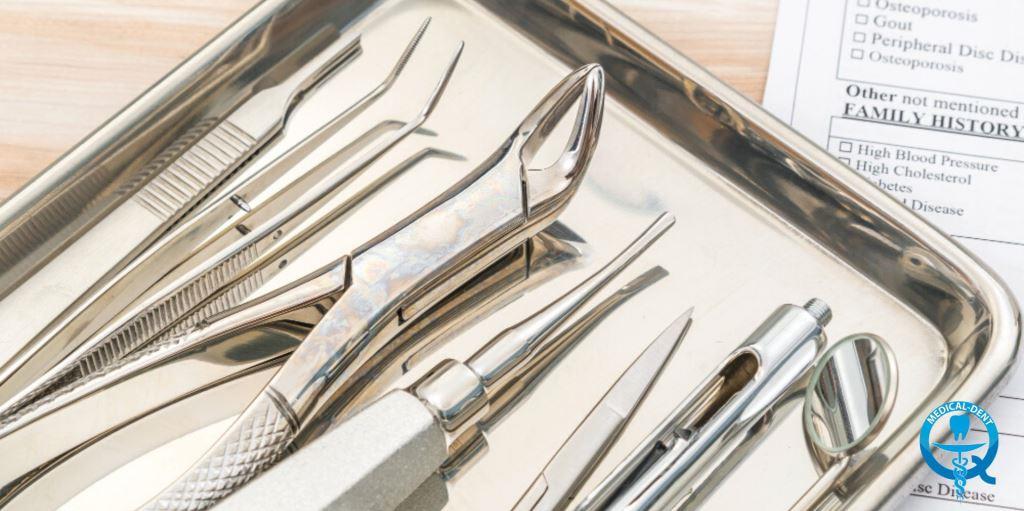
Removal of milk tooth
It is only performed in a few cases. Firstly, if the millipede is dead, diseased or affected by gangrene and therefore rotting from the inside, thus posing a danger to the child's health.
Secondly, when a tooth refuses to fall out on its own and interferes with the eruption of already formed permanent teeth. Of course, the decision is taken after orthodontic consultation. The loss of milk teeth too early does not have a positive effect on the occlusal development. The absence of one or more deciduous teeth in the arch causes displacement of adjacent teeth and loosening.
That's not all! The hole left by a ripped out millipede becomes a increasingly obscured by other teeth, which can make it difficult for permanent teeth to appear in this area. On top of this, disorders of the speech organs can occur, resulting in speech defects.
The whole thing has an impact on the child's sense of self-worth, which translates directly into the quality of his or her life now and in adulthood. So we recommend at all costs not to make it necessary to remove a deciduous tooth. And instead of treating deciduous tooth decay, prevent it.
Therefore, if your child's last visit She went to the dentist more than 6 months ago, as soon as possible make an appointment in our practice. We will take care of your little one's beautiful and healthy smile.

